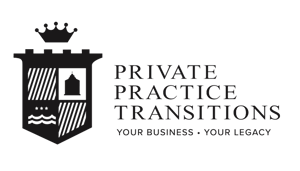Selling a private practice is a significant milestone for any owner. Whether you’re transitioning to retirement or pursuing new opportunities, the process of selling your practice requires thorough preparation and strong negotiation skills.
Negotiating the sale effectively can help you achieve your financial and professional goals while leaving your legacy in capable hands. Review these negotiation tips for selling a private practice to make the process as rewarding as possible.
Obtain a Business Valuation
First, you should obtain a business valuation to set the foundation for successful negotiations. A certified and experienced broker can provide insight into your business’s fair market value, helping you approach negotiations from a position of confidence.
The valuation process assesses various factors including revenue streams, client base, physical assets, goodwill, etc. A formal valuation will also help prospective buyers feel confident making an investment in your practice.
By relying on quantitative metrics during discussions, you can avoid pricing your practice too high or unnecessarily undervaluing its worth. This clarity leads to more constructive conversations and realistic outcomes for both parties.
Determine Your Sales Goals
Another important step is defining what you want to accomplish with the sale. Consider your financial requirements, desired timeline, and emotional priorities. Are you aiming for the highest possible sale price, or does finding a buyer who aligns with your values take precedence? Addressing such questions shapes your negotiation strategy.
Clarifying your goals allows you to remain decisive and focused during the process. Without clear objectives, external pressures may sway you to abandon your desired outcomes. Whether the process involves structuring the deal to favor an upfront cash payout or retaining partial ownership for ongoing revenue participation, your goals should guide each step of the discussions.
Hire Experienced Professionals
The sale of a private practice involves multiple layers of complexity, making the guidance of seasoned professionals invaluable. Engaging a team of advisors—including a certified business broker and an attorney—equips you with specialized insights.
Each expert will play a distinct role throughout the process. For example, the attorney can safeguard legal compliance and ensure you have complete and clear deal documents, while the broker can facilitate connections with prospective buyers and negotiate the best deal on your behalf.
Having knowledgeable advisors by your side allows you to approach negotiations with confidence. Their guidance can make the difference between an efficient, successful transaction and a lengthy, frustrating process.
Develop a Profile of Your Practice
Creating a detailed profile of your private practice enhances its appeal to potential buyers. This document should paint a clear picture of the services you offer, its operational structure, your client demographics, and overall performance. Highlight your practice's strengths, whether it’s a highly skilled team, loyal clientele, or innovative service offerings that set you apart from competitors.
This profile is a roadmap for prospective buyers, helping them envision their potential ownership experience. Providing transparent and organized information also alleviates concerns and builds trust, which can play a key role in your negotiations. Compiling this profile demonstrates preparedness and a commitment to securing an efficient sale.
Find a Trustworthy Buyer
Identifying the right buyer requires more than seeking someone who meets your financial expectations. Their values, vision, and long-term goals should align with what you’ve built. Find someone who genuinely appreciates the reputation and structure of your practice and will support a successful transition.
The buyer should also have the necessary skills and experience to take on the responsibility of your practice. Choosing the right individual or organization can safeguard your practice’s reputation and foster loyalty among clients and staff.
Ensure Your Team Knows Your Goals
Aligning your advisory team with your objectives is vital to achieving your desired outcome. All members—from brokers to legal advisors—should clearly understand what matters most to you and be aware of any possible dealbreakers. Consistent communication ensures everyone is working cohesively and advocating for the same priorities during negotiations.
Maintain regular discussions with your team to clarify expectations and address questions. Avoid mixed messages to potential buyers by ensuring your advisors represent your interests. A united front during negotiations helps strengthen your position.
Be Polite During Negotiations
Maintaining politeness during negotiations is critical to building trust and fostering a productive environment. You should demonstrate respect for the other party’s perspective, which can lead to more collaborative discussions and creative problem-solving.
However, heated or overly aggressive tactics can stall progress and make reaching a mutually beneficial agreement more difficult. By staying calm and courteous, you establish goodwill and create an atmosphere where both sides feel valued.
It is also wise to listen actively to the other party's concerns and address them thoughtfully, without dismissiveness or impatience. This approach encourages open dialogue and reduces the likelihood of misunderstanding or conflict.
Show You Can Be Flexible
While having clear goals is important, you should also remember to be flexible. Negotiations often involve trade-offs, and an overly rigid approach can hinder progress. Flexibility allows for the development of creative solutions that satisfy both parties while staying true to your primary objectives.
For instance, a buyer may propose payment terms that differ from your initial expectations but include advantages elsewhere in the agreement. When you approach these discussions with an open mind, you can identify alternatives that align with your broader vision.
Selling a private practice involves many moving parts, from valuation to identifying the right buyer, to drafting the LOI and deal documents. With a clearly defined strategy and the support of advisory professionals, you can position yourself for a sale that aligns with your goals and reflects the value of what you’ve built.
Before you list your business for sale, contact Private Practice Transitions. As certified business brokers we can help determine the fair market value of your business, match your accounting or physical therapy practice with an ideal buyer, and lead the negotiation process on your behalf. Let us help you put your business in good hands before you enter the next phase of your life.







